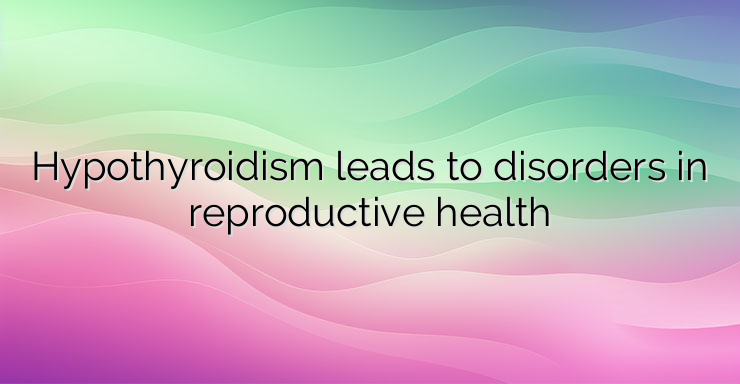The incidence of hypothyroidism in pregnancy is between 0.3 and 0.5%. The increased physiological needs of the fetus lead to an increased production of thyroid hormones, which necessitates a greater production of estrogen during the first half of pregnancy. In this way, the release of thyroxine-binding globulin – TBG from the liver increases. Elevated levels of TBG disrupt the balance between the bound and free fractions of T4 – tetraiodothyroxine. A link has been established between fertility disorders and hypothyroidism. The main causes are due to the changes and disturbances in the ovulatory cycles that hypothyroidism causes. Autoimmune thyroiditis is the most common cause of hypothyroidism in women of childbearing age. Thyroid hormones are key to maintaining reproductive health. Unmonitored and undiagnosed disorders in the function of the gland can lead to reduced chances of pregnancy and infertility. This is due to the condition’s associated high prolactin levels, anovulatory cycles, luteal phase defects, and hormonal imbalance. A study conducted with 94 participants with hypothyroidism tracked the impact of treatment for this condition on reproductive potential. Controlling thyroid function has been found to significantly improve reproductive health. Observations have shown that in the presence of autoimmune antibodies against thyroperoxidase – anti-TPO, a higher frequency of infertility is observed among patients of childbearing age. Numerous studies have confirmed the link between autoimmune processes in the thyroid gland and an increased incidence of miscarriage or premature birth. This is due to a lack of thyroid hormones, which has a direct impact on the placenta and the creation of an environment for the fetus that suggests the development of autoimmune processes. Disorders in the functions of the thyroid gland are often associated with changes in the menstrual cycle. This can lead to infertility. Certain lifestyle changes, such as high stress, intense exercise, and weight loss diets, can lead to a lack of periods or frequent anovulatory cycles. This is associated with reduced secretion of luteinizing hormone – LH. These changes lead to a lack of ovulation, which disrupts the normal flow of menstrual cycles and is the cause of infertility. With hypothyroidism, disturbances in menstruation and fertility are more often observed. Menorrhagia – bleeding from the uterus outside of menstruation – is more often observed in these patients. A higher incidence of oligomenorrhoea or amenorrhoea has also been found in hypothyroidism. References: https://www.ncbi.nlm.nih.gov/pmc/articles/PMC7605301/


Leave a Reply